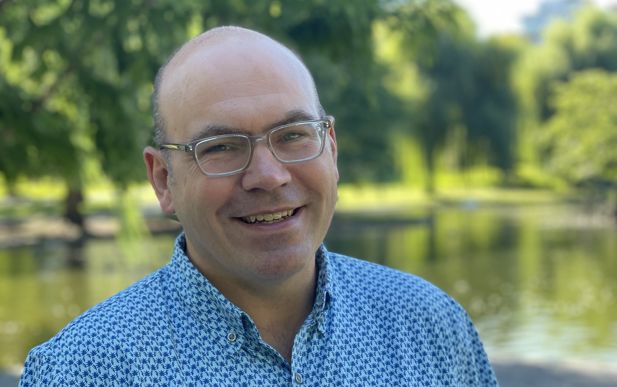Dr Jonathan Peelle | Coping with real-world challenges during spoken language comprehension
- Location
- 52 Pritchatts Road - Lecture Theatre 1 (G16), Hybrid Event, in person, Zoom - registration required
- Dates
- Tuesday 10 September 2024 (13:00-14:00)
- Contact
chbh@contracts.bham.ac.uk

This seminar is free to attend and is open to all, both within and outside the University. Attendance is possible both in-person and on Zoom, details of Zoom registration and physical location can be found above.
We are delighted to announce that the Centre for Human Brain Health (CHBH) will welcome Dr Jonathan Peelle, an Associate Professor at the Bouvé College of Health Sciences at Northeastern University, to present a hybrid CHBH Seminar, taking place on the date and time above. His full biography can be found below.
To arrange a 1:1 meeting with the speaker, please state your interest in the Zoom registration link above, or email chbh@contacts.bham.ac.uk.
CHBH Event Host
Dr Katrien Segaert
Talk Title: Coping with real-world challenges during spoken language comprehension
Abstract
Everyday communication is full of sensory and cognitive challenges that are not always reflected in laboratory studies of language processing. Using brain imaging and behaviour, I will focus on two aspects—acoustic challenge and visual speech information—and discuss how these types of processing may expand traditional views of language processing. I will also discuss how individual differences in listener ability relate to the brain regions engaged in successful comprehension, with a special focus on adult aging. Finally, I will talk about potential for real-world neuroimaging using fNIRS. These findings have implications not only for spoken language processing but for our understanding of individual differences in cognitive function more broadly.
Speaker Biography
Dr. Peelle obtained a master’s degree in cognitive psychology and PhD in neuroscience from Brandeis University, with postdoctoral training at the University of Pennsylvania and the MRC Cognition and Brain Sciences Unit in Cambridge, England.
His research is centered on the psychological and neural basis for human communication, particularly in the interaction between sensory and cognitive, and social factors. Because of the central role of spoken language in our everyday lives, understanding contributors to speech comprehension can provide clues as to how we can maintain and improve communication success throughout our lives.
This seminar is free to attend and is open to all, both within and outside the University. Attendance is possible both in-person and on Zoom, details of Zoom registration and physical location can be found above.